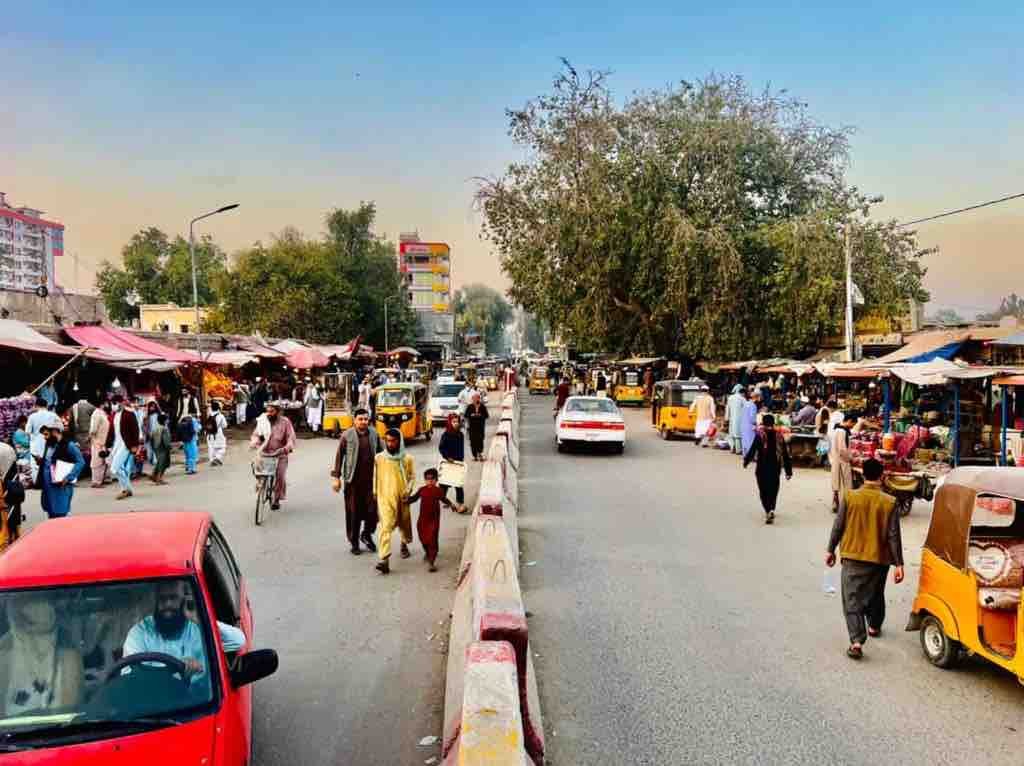Pakistan’s Deportation Campaign: The Harrowing Plight of Returning Afghan Refugees

Photo: @Afghan
By Nazila Jamshidi
On October 3, the Pakistani government declared its intention to conduct large-scale deportations of undocumented migrants, primarily targeting Afghan refugees, effective from November 1, 2023. This directive applies to approximately 1.7 million Afghan refugees residing in Pakistan without proper documentation. The decision drew criticism from various international human rights organizations, including Amnesty International, Human Rights Watch, and the United Nations, urging the Pakistani government to suspend the deportation plan immediately. Despite these calls, the Pakistani government initiated the detention of Afghan refugees in 49 government-established centers, followed by their deportation. Furthermore, authorities announced plans to seize the assets of “illegal foreigners” and take punitive measures against locals aiding or sheltering individuals falling into this category.
Islamabad asserts that the deportation choice stems from changing assessments of the terrorist threat confronting Pakistan. Nonetheless, global entities such as the UN and Amnesty International deem it a violation of international legal commitments to human rights, notably the principle of non-refoulement, which prohibits returning individuals with a credible fear of persecution to a country undergoing a severe crackdown on human rights and an ongoing humanitarian crisis. Despite these concerns, the forced departure of Afghan refugees has commenced, and the Pakistani government has committed to persisting with the campaign.
Amidst reports of detention and deportation that stirred reactions and condemnation from human rights activists, a photograph depicting an Afghan child tied with a rope to a moving truck while waving gained widespread attention, highlighting the tragedy. The image resonated as déjà vu for millions of Afghans who have endured the challenges of refugee life, connecting the photo to the harsh reality behind it. Many regarded the photograph as a clear illustration of Pakistan’s adherence to human rights obligations.
Pakistan’s return policy is raising concerns under international human rights law
Along the border, a tragic situation emerges as thousands of returnees encounter extended delays in the passes between Afghanistan and Pakistan. Enduring days of waiting on the Pakistani side without proper accommodations, refugees live in unsafe conditions along the roadside with their children. Upon entering Afghanistan, refugees encounter further delays as local authorities grapple with the registration process and transportation to makeshift camps. The deportation policy has led to a substantial rise in transportation costs for goods crossing the border, compounding the difficulties for those already struggling to survive under refugee status in Pakistan.
The tragedy extends beyond the border, encompassing the 1.7 million undocumented Afghan refugees, a group that includes those who sought refuge after the Taliban’s takeover in August 2021. Among these individuals are journalists, musicians, and those who collaborated with the U.S. and the former Afghan government, placing their lives at significant risk upon their return to Afghanistan. The heightened danger is evident, especially for those who worked with the U.S. Army and NATO, as evidenced by over 200 recorded cases of revenge killings by the Taliban. The forcible deportation of these groups raises serious concerns from legal and humanitarian perspectives.
What could be done?
Amid the ongoing humanitarian crisis and escalating human rights violations in Afghanistan, there is an urgent call for increased international attention to the plight of Afghan refugees. Foreign governments, particularly those with sway in Islamabad, particularly Western ones, should advocate for the Pakistan government’s cancellation of the repatriation plan. Meanwhile, nations like the United States, European countries, and Canada should expedite the resettlement process for Afghan refugees, especially those at risk of persecution upon returning to Afghanistan. Countries possessing political influence, notably the United States, should exert pressure on the Taliban to uphold the rights of Afghans and adhere to their amnesty plan, announced in the early days of their takeover in Kabul. This concerted effort is crucial to ensuring the safety of refugees upon their return, particularly considering the potential exodus of Afghan refugees to neighboring countries like Iran and Turkey.
Nazila Jamshidi – a gender equality and human rights specialist involved in Afghanistan’s development and democracy processes for the past decade – has worked for the UN, USAID, the International Federation of Red Cross.
Note: The contents of the article are of sole responsibility of the author. Afghan Diaspora Network will not be responsible for any inaccurate or incorrect statement in the articles.





